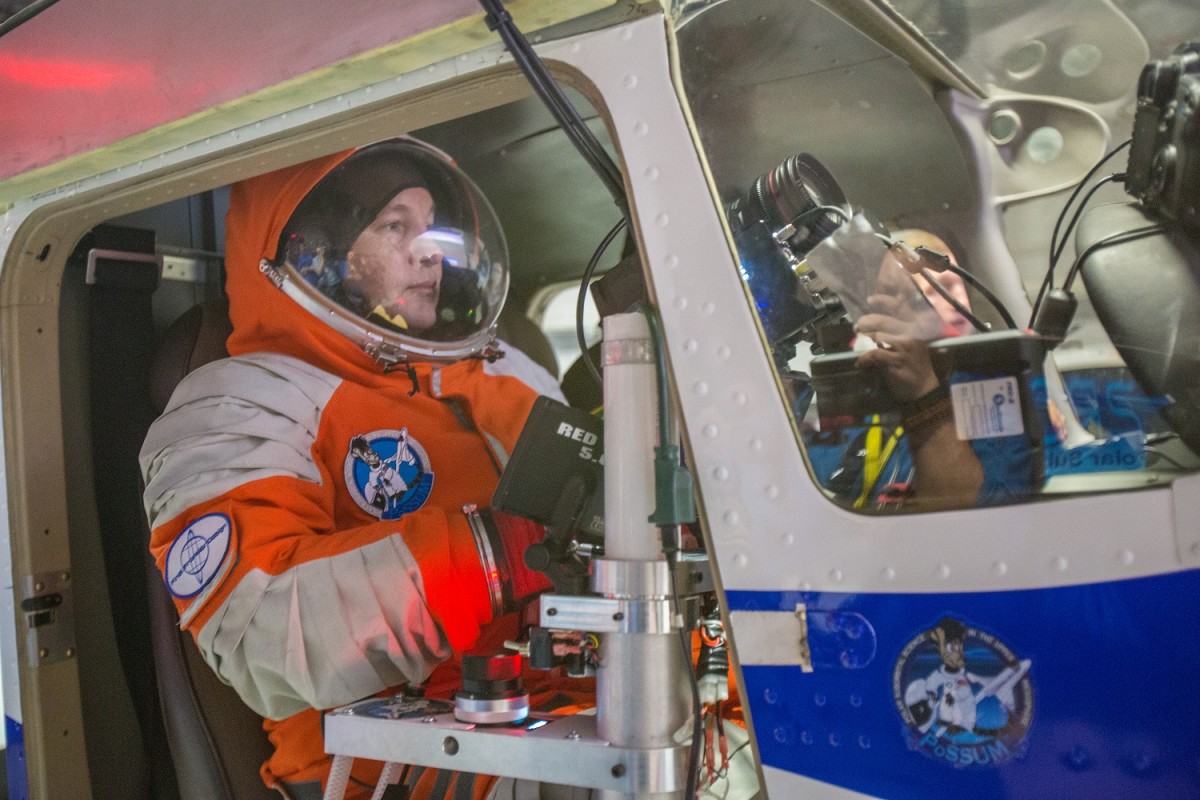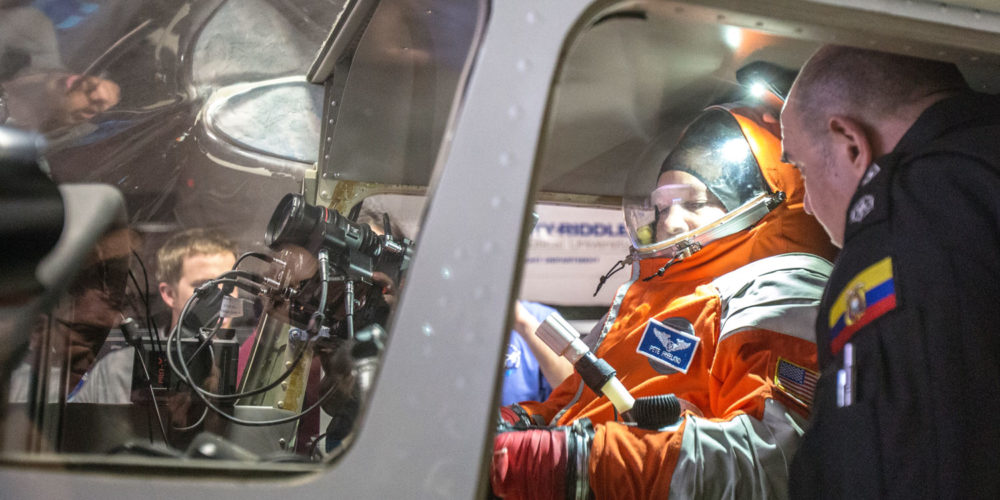Embry-Riddle alumni are among the first to train as commercial suborbital astronauts and it’s no surprise that they’re getting some of that training at their alma mater. Jeff Scallon (’10, DB), Pete Freeland (’93, WW) and six other scientist-astronaut candidates spent several days at Embry-Riddle’s Daytona Beach Campus in February, learning crew resource management principles using a custom simulation program. They also tested special anti-gravity outerwear during simulated zero-gravity flights, courtesy of aerobatic pilot Patty Wagstaff.
The candidates are preparing to fly over Earth’s arctic regions in manned reusable suborbital spacecraft to study noctilucent clouds as part of Project PoSSUM (Polar Suborbital Science in the Upper Mesosphere), a non-profit international suborbital research program of which Embry-Riddle is a member. The clouds, which reside in the Earth’s mesosphere at altitudes of approximately 83 kilometers above the planet, were first observed in 1885 and are believed to be formed by water molecules that have collected on meteor particles. Scientists are interested in studying the recent growth of noctilucent cloud banks and their connection with the greater atmosphere, global climate trends, and their effects on re-entry vehicles.
“PoSSUM is not about space tourism; it’s an international research program dedicated to the study of global climate,” says PoSSUM Principal Investigator Jason Reimuller, who organized the scientist-astronaut qualification program at Embry-Riddle.
Eagle Astronauts
For Scallon, the PoSSUM project is an opportunity to become one of a handful of people to experience suborbital flight. “There aren’t that many suborbital flights that have been conducted. It’s a new science,” he says. Historically, there have been only eight suborbital flights, with space defined by the Fédération Aéronautique International as 100 km above the Earth’s surface.
A private pilot and member of Astronauts for Hire, a nonprofit organization made up of scientists and engineers interested in developing civilian/commercial space flight, Scallon says PoSSUM brings together his interests and experiences in science, flight and aerospace medicine. “It’s an undiscovered frontier that I want to probe,” says Scallon, who earned an M.S. in Engineering Physics at Embry-Riddle and was scheduled to complete a Doctor of Medicine degree in July.
Freeland agrees. A senior project engineer at Northrop Grumman, part-time actor, veteran Air Force pilot and three-time finalist for NASA astronaut candidacy, he says he doesn’t care how he gets into space, as long as he gets there. “Going to space is something I’ve wanted to do since I was 3 years old watching the astronauts walk on the moon. I’d love to get an opportunity to go beyond suborbital heights, to work on the International Space Station, or even to go to Mars.”
PoSSUM has yet to acquire a spacecraft, but it projects its first exploratory flight will be in 2016.

Embry-Riddle Partnership
The four-day training program at Embry-Riddle in February was just the beginning, says Tony Cortés, professor and chair of the Applied Aviation Sciences department. The university has signed a memorandum of agreement for ongoing training and research activities with Integrated Spaceflight Services, the parent organization of Project PoSSUM. Embry-Riddle’s newly developed suborbital space flight simulator technology is key to the agreement.
“PoSSUM aligns well with the university’s existing Commercial Space Operations degree, one of the newest and fastest growing programs on campus,” Cortés says. Embry-Riddle students can observe the training activities and participate in joint research projects; and eventually, the suborbital spacecraft simulation training that PoSSUM trainees receive will be available to students as well.
“We’re creating an elaborate and immersive environment to be used for collaborative research in suborbital spaceflight and integrated into the commercial spaceflight curriculum,” Cortés says. “My dream is that two to three years from now, when someone thinks about training or research in resource management for suborbital spaceflight, the first thing that will come to mind is Embry-Riddle.”
The next PoSSUM Scientist-Astronaut Qualification Program will occur at Embry-Riddle Oct. 10-14, 2015. Interested individuals may apply online through the PoSSUM website, www.projectpossum.org.
